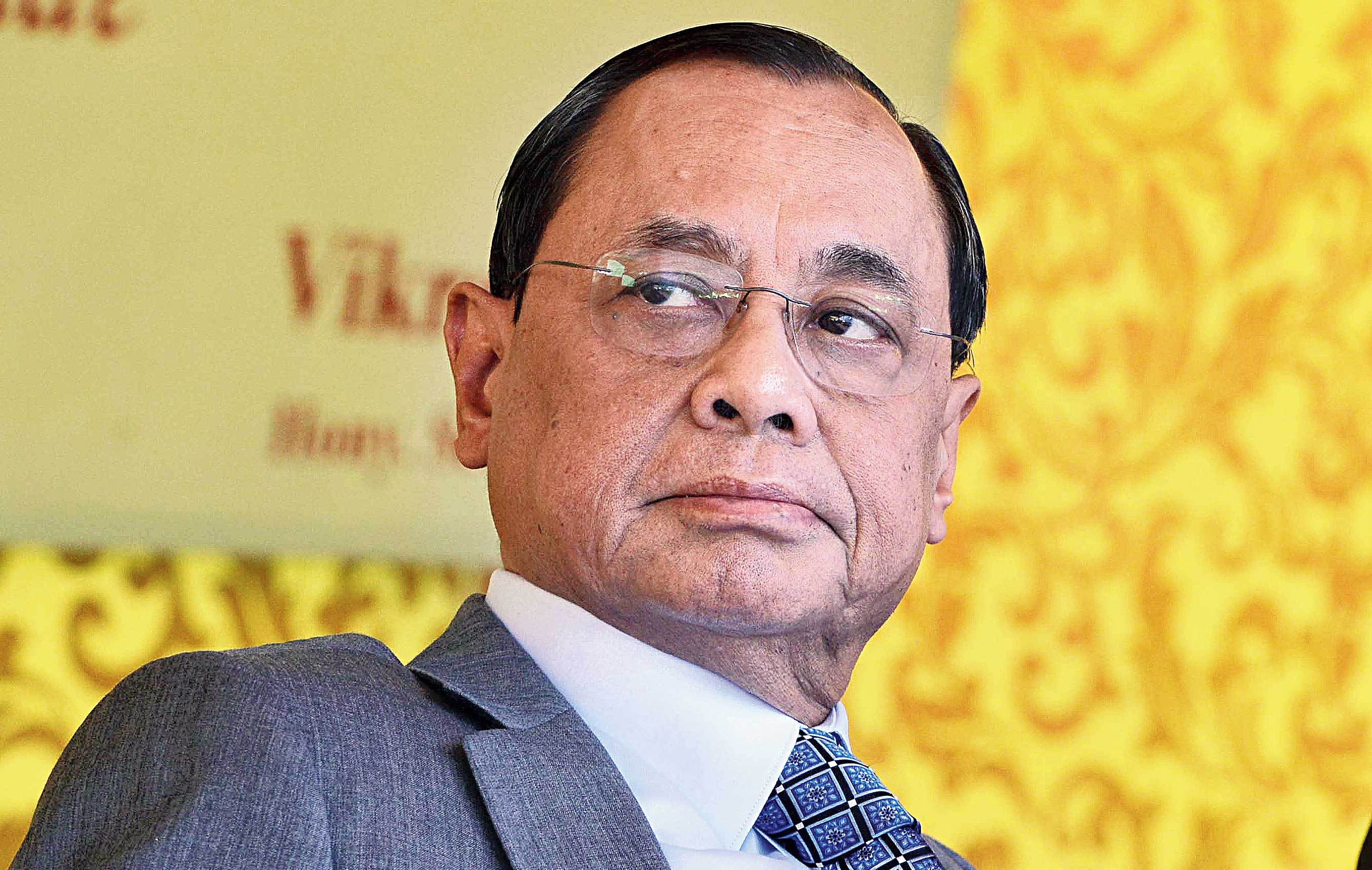A five-judge constitution bench will begin hearing from October 1 a batch of petitions challenging the scrapping of the provision in Article 370 that granted special status to Jammu and Kashmir and the bifurcation of the state into Union territories.
Justice N.V. Ramana will head the bench. The other members of the bench are not yet known. According to sources, Chief Justice of India Ranjan Gogoi took the decision on Friday afternoon. An official announcement is yet to be notified.
The CJI is also understood to have cleared the decision to set up a three-judge bench to deal with 100-odd death-row appeals pending in the Supreme Court.
Two separate two-judge benches will also be formed next month to exclusively deal with taxation matters. The dates of the commencement of hearing by these benches will be decided shortly, sources told The Telegraph on Saturday.
On August 28, the apex court had referred a batch of petitions challenging the cancellation of Jammu and Kashmir’s special status to a five-judge constitution bench to begin hearing from the first week of October.
A special bench of CJI Gogoi and Justices S.A. Bobde and Abdul Nazeer had earlier issued notice to the Centre on these petitions, brushing aside the objections raised by attorney-general K.K. Venugopal and solicitor-general Tushar Mehta who had claimed that such a move would lead to “internationalisation” of the matter.
Jammu and Kashmir has been under an undeclared curfew since August 5, when the Centre abrogated the state’s special status and bifurcated it.
In all 10 petitions have been filed in the Supreme Court relating to Article 370, of which six have challenged the constitutionality of the Centre’s action.
Two more petitions have been filed by Kashmir Times editor Anuradha Bhasin and Congress leader Tehseen Poonawala seeking removal of the restrictions imposed on media reportage of the situation in the state and ensuring supply of essential services to the people.
The decision to set up a special three-judge bench to deal with death-row cases is said to have been prompted by the pendency of 100-odd cases of capital punishment in the top court. These appeals are pending for the past decade; so the court wants to give priority to them.
In December 2018, while dismissing several frivolous PILs filed by some persons, CJI Gogoi had told an open court that about 100 death-reference cases were pending before the Supreme Court, which needed priority rather than such baseless petitions.











